Musings from Students of the Pardes Institute of Jewish Studies in Jerusalem
Posted on February 22, 2014 by Carolyn Gerecht
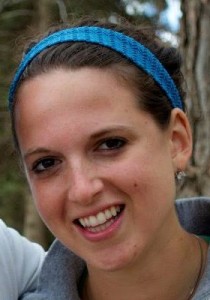 This year, studying in the Pardes Center for Jewish Educators’ Program for Experiential Jewish Education (PEEP) and Yeshiva University’s Certificate in Experiential Jewish Education, I’ve been fortunate to have had many, many opportunities to answer the question, “What exactly is Experiential Jewish Education?”
This year, studying in the Pardes Center for Jewish Educators’ Program for Experiential Jewish Education (PEEP) and Yeshiva University’s Certificate in Experiential Jewish Education, I’ve been fortunate to have had many, many opportunities to answer the question, “What exactly is Experiential Jewish Education?”
Typically, I respond in a couple of short sentences. “Most people think of it as the kind of Jewish education that happens ‘outside the classroom’ – youth groups, Hillels, summer camps, that kind of thing. But it’s really sort of an emerging educational philosophy that cares about the experience of the learner and deliberately structures learning environments…” But by then, I’ve probably already lost you (and understandably so).
Experiential Jewish Education is the process of teaching Jewish life, and Jewish values, by building meaningful Jewish experiences – creating programs that combine traditional methods of text study, learning, and service with physical and emotional interaction between learners.
That might mean learners experience directly the warmth of a Shabbat dinner together. They might participate in a mock Beit Knesset voting on enacting a Jewish law as a national law. They might build a real eruv. Learners form extremely close relationships with each other, and with outgoing, knowledgeable role model/educators. EJE works to inspire learners to embrace meaningful Jewish lives.
Before I share a little bit about what I’ve learned this year, at Pardes and YU, it’s important to preempt:
Additionally, I have also learned this year that Experiential Jewish Education…
An experiential Jewish educator…
Below are some photos from the professional development training that I have received this year, through the Pardes Center for Jewish Educators and Yeshiva University. I hope they help to explain and excite you about the incredible potential for this field.
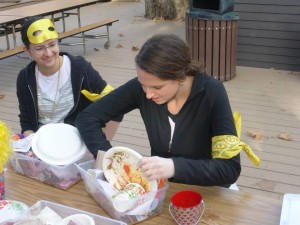
At Camp Shalom in Los Angeles in January, our YU Certificate in Experiential Jewish Education cohort split into 4 groups. Throughout the week, each group had 45 minutes to teach the laws and values of shemita – and each using a different educational ideology. Here, one group used Color War to talk about the values of shemita through sensory education. (Yes, we are sorting through trash.)
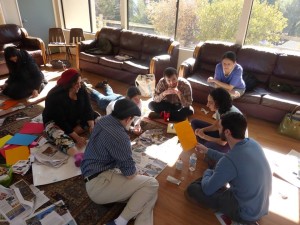
In one workshop, our cohort practiced “Imagineering” by making posters together. We sorted through old magazines and newspapers to create posters, and asked questions like “What are the obstacles to creativity? What enhances creativity?”
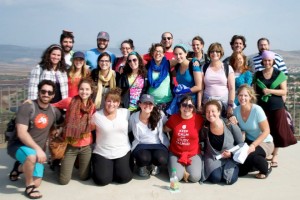
The Pardes Center for Jewish Educators (PCJE) took a trip this fall to Tzippori, in the north of Israel, and once a center of Jewish religious and cultural life. Connecting our own individual narratives to collective Jewish history is an important component of experiential Jewish education.
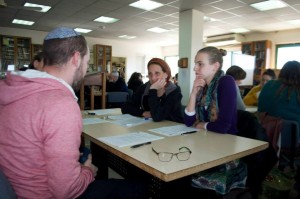
A PCJE student has the opportunity to lead a small group discussion in the Pardes Beit Midrash on 9 Adar, guiding a conversation with students and faculty members about our own journeys with Zionism. “What is our relationship with Israel? What excites us; challenges us about living in Israel?”
In programs all across the world, experiential Jewish educators are developing the skills they need to succeed – skills just like these. We are learning to be deliberate, inviting, and memorable. We are learning Jewish content, creativity, charisma, and community-building.
And most of all, we are learning to create “wow” moments: inspiring Jewish experiences that surprise and excite a new generation of learners to wrestle with the same Jewish values and questions that we all address every single day.